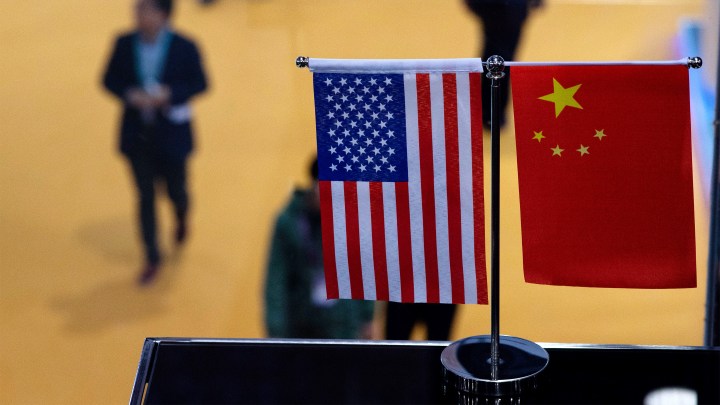
Prospect of U.S.-China “decoupling” grows amid shortages of medical goods
Prospect of U.S.-China “decoupling” grows amid shortages of medical goods

Half a year ago, the notion of the United States and China splitting into separate economic spheres struck U.S. multinational executives based in China as highly unlikely.
Today, that’s changed. A new survey of executives at American corporations with long histories in the China market finds 44% responding that U.S.-China economic “decoupling” is “impossible.” That’s down from 66% last fall, suggesting “great potential” for such decoupling, according to the survey from AmCham China, AmCham Shanghai and PwC China.
The survey comes amid increasing calls to bring the manufacturing of essential medical goods — safety gear, pharmaceuticals, devices such as ventilators — back to the U.S. Many items in short supply — masks, safety gowns, raw materials for pharmaceuticals such as penicillin and ibuprofen — come primarily from the same country: China. These concerns were stirred, in part, as some Chinese factories shut down because of the virus. In other instances, the plants sold goods to other countries or to citizens at home.
“One of the learnings from the public’s point of view is that in many ways all roads go back to China,” said Benjamin Shobert, senior associate for international health at the National Bureau of Asian Research. “Given the political realities, the public health realities, now we’re asking ourselves this question of how much of this manufacturing infrastructure are we comfortable having be dependent on China?”
It’s a familiar question. American officials have expressed anxiety about global supply-chain vulnerability in other sectors: semiconductors, 5G telecommunications gear and critical minerals for weapons and advanced batteries. The U.S. government has blocked Chinese acquisitions in key industries, including oil, semiconductors and social media.
On the Chinese side, Beijing’s Made in China 2025 plan is explicitly designed to reduce the nation’s dependence on foreign technology. In addition, the Chinese government has curtailed private sector financial investments in the United States.
“China’s government, nervous about capital outflows as a sign of financial risk and instability, [closed] their own door on their own companies going abroad,” said Daniel Rosen, founding partner of the Rhodium Group consultancy.
Given the pandemic, Rosen expects more calls to bring manufacturing home to the U.S. But that could be expensive because of its higher labor costs. And in some sectors, there may be a shortage of skilled labor. So Rosen suggests less drastic steps.
“Smarter stockpiling, diversification of global supply chain activity so they are not all concentrated in one country are additional strategies that need to be thought through,” he said. “Not just reshoring.”
One risk: raising drawbridges in the global economy could backfire. Since March, more than 30 medical export bans have been imposed around the world. Historically, these types of trade barriers invited tit-for-tat retaliation. And it could happen again — with protective masks, for instance.
“With masks, you’ve probably heard, 3M is doing its best to ramp up production as fast as possible,” said Douglas Irwin, economic historian at Dartmouth College. “But it’s also dependent on imports from Canada of the fibers that go into the masks.”
So if the United States says no masks for Canada, the Canadians could respond and say no fibers for you. And everyone loses.
“So that just begins to cascade and make things more problematic going forward,” Irwin said.
There’s a lot happening in the world. Through it all, Marketplace is here for you.
You rely on Marketplace to break down the world’s events and tell you how it affects you in a fact-based, approachable way. We rely on your financial support to keep making that possible.
Your donation today powers the independent journalism that you rely on. For just $5/month, you can help sustain Marketplace so we can keep reporting on the things that matter to you.












